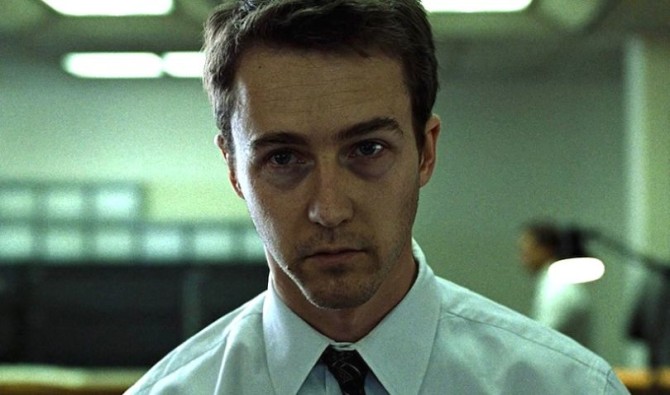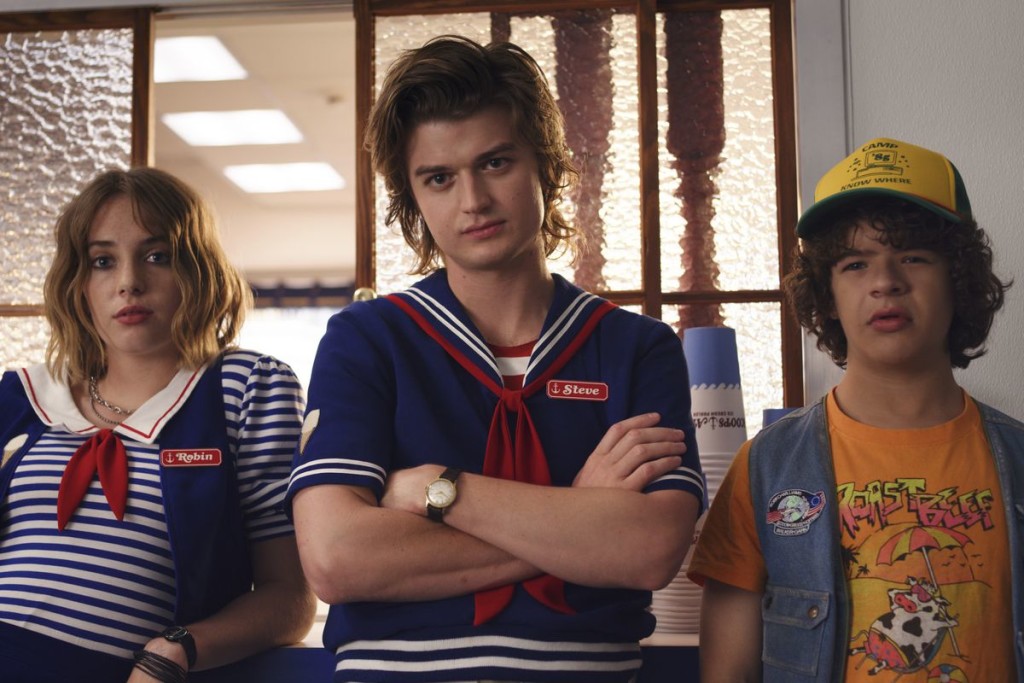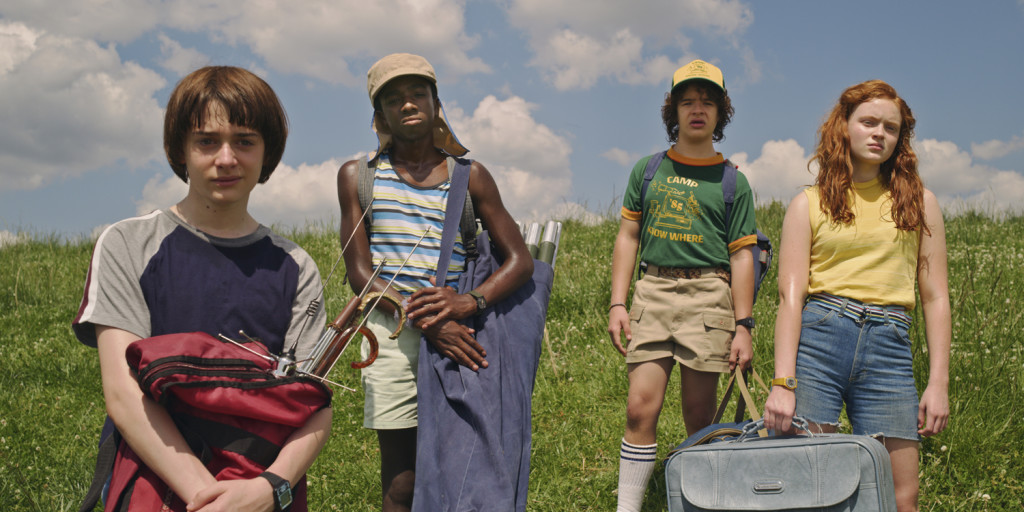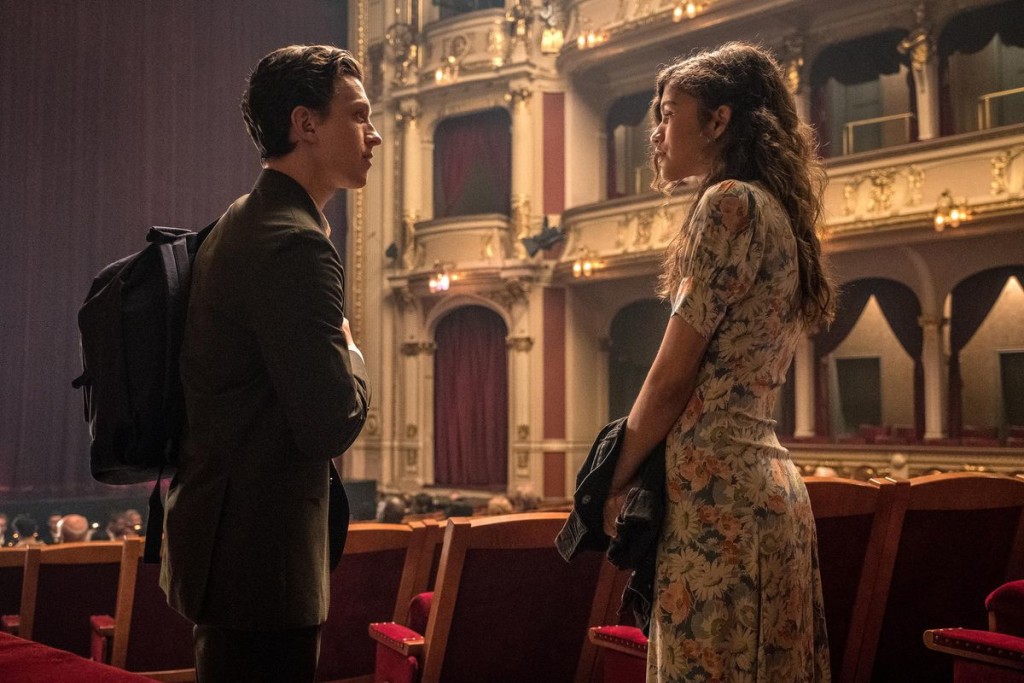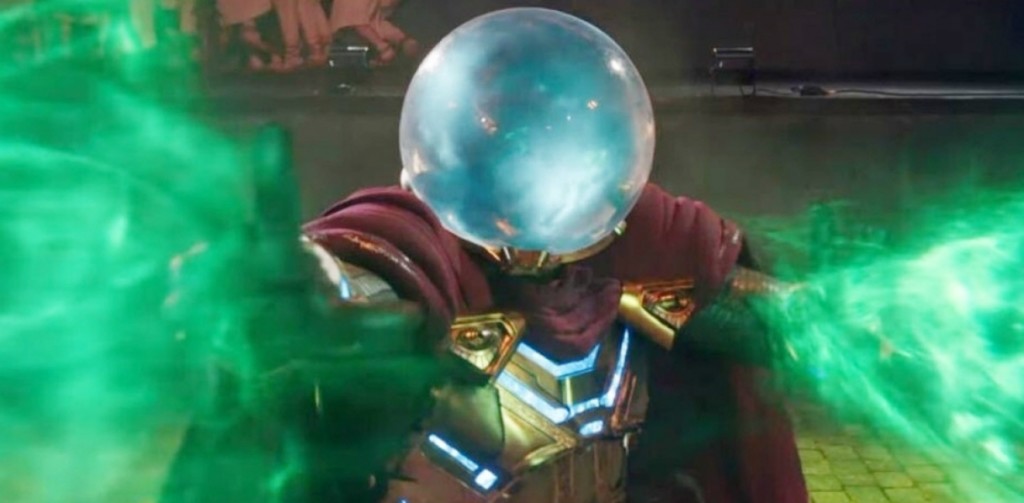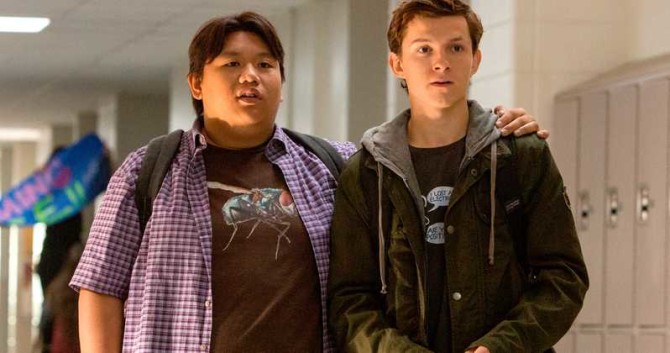Last week we talked about how to set up a scene in order to create the best dialogue. Today we’re going to go back even further than that and talk about how to create characters that lead to good dialogue. How important is character creation when it comes to dialogue? Well, you know that guy Quentin Tarantino? The screenwriter who many believe writes the best dialogue in town? All Tarantino does is he creates a series of larger-than-life characters and simply lets them talk. You could argue that unless you’re constructing some of your characters with the larger-than-life gene, you’re dooming your screenplay to bad dialogue. Think about it, how many average characters do you remember in all of the movies you’ve seen who spit out memorable dialogue? I’m guessing none.
So my first piece of advice to you when it comes to character and dialogue is to create a character who’s larger than life in some way. Now when I say, “larger than life,” I don’t mean Melissa McCarthy in Bridesmaids. I mean there’s something about your character’s personality that’s bigger than the average person. Juno is a good example. That character was talkative and opinionated, slightly larger than life. But she was still able to exist in reality. Steve Jobs in Aaron Sorkin’s “Jobs,” is another example. Big and opinionated and intelligent and thoughtful. He had that larger than life quality.
So the next question becomes, how do we vary these characters? Not everyone should be Juno. The good news is, it’s not as hard as you think. Personality comes in many different flavors. There’s the motormouth, the joker, the know-it-all, the b.s.’er, the opinionated, the walking thesaurus. Write out a list of all the people you know in your life and next to them write down what their most dominant trait is and you’ll get a sense of what types of people are fun to listen to and what types aren’t. You can also watch sit coms (Seinfeld is a good one) where characters, especially guest characters, are highlighted by a particular trait (the soup nazi is militant, for example), and get ideas that way. It’s important to note that every trait is scaleable to the tone of the movie you’re writing. There’s a version of the Soup Nazi for a move like “The Mule.” You’d just have to dial the goofiness back and make him one of the drug dealers, not a soup dealer.
One of the things that really gets in the way of good dialogue is, believe it or not, the main character. This is because your main character is often the most grounded variable in your story. Their goals and desires need a certain element of truth to them for us to care about their journey. Unfortunately, this often makes them an un-engaging conversationalist. And normal conversation isn’t as fun to read as larger-than-life conversation. This is why people remember Han Solo over Luke Skywalker, Jack Sparrow over Will Turner.
There are a couple of ways to deal with this. The first is to buck the trend of writing a grounded main character and center your story around someone larger than life. A good example of this is The Narrator (Edward Norton) in Fight Club. The guy is very thoughtful and has lots of opinions on work, love, and life, and he’s giving us a rundown of these thoughts throughout the story. He’s anything but your average grounded main character. Christy Hall’s angry man-hating heroine, Skylar, in her spec, “Get Home Safe,” is another anti-grounded character who says what’s on her mind and doesn’t care how you feel about it.
The second way to tackle this problem is to identify which character in your script shares the most screentime with your grounded lead and make sure they’re a larger-than-life character. A recent example of this is Hell or High Water. In that film, Toby Howard (Chris Pine) is our muted reserved down-to-earth lead and Tanner Howard (Ben Foster), his brother, is our alcoholic rambling joking threatening larger-than-life character. What this does is it creates contrast between the characters. Contrast results in a steady wave of conflict. And conflict is where you’re going to find all of your best dialogue. And the reason, of course, that you do this with the second biggest character is because you’ll have a ton of scenes with those characters throughout the screenplay, which guarantees you a lot of good dialogue exchanges.
One of the most dangerous things you can do in a script is create two down-to-earth grounded leads who aren’t big talkers. I’m sure a few cinephiles here can name a movie or two where that’s worked. But I’m guessing those examples are few and far between.
How many larger-than-life characters should you include in your script? That’s obviously going to depend on genre and what kind of script you’re writing. Every character will have a function in the screenplay that may or may not jive with being “larger than life.” However, one of the nice things about supporting characters is that their lives don’t have to be as fully-shaped and grounded as your leads. Therefore, you can have more fun with them. A movie with great dialogue is Good Will Hunting and pretty much every supporting character in that movie is larger than life. Chuckie (Ben Affleck) was a big goofball. Morgan (Casey Affleck) was the willing butt of the joke. Skylar was big and humorous and always ready to have fun. Lambeau (the math professor) was this fevered tortured soul desperate to see this young man reach his potential. And of course Sean the Therapist was the most animated character of them all. If there ever was a movie to prove the point of this article – that larger-than-life characters are the key to good dialogue – Good Will Hunting would be it. To summarize, there’s no limit to how many of these characters you can add. But there are situations where you have to be very judicious about adding multiple larger-than-life characters. I probably wouldn’t have a ton of them in Moonlight, for example.
I want to finish this off by saying that one of the consistent threads in the scripts I read that contain lifeless dialogue is the lack of interesting characters. It’s hard to make someone sound unique who isn’t. This is the reason for another big dialogue faux-pas, which is try-hard dialogue – characters saying big outlandish things that they would never say. This happens when writers construct uninteresting characters and then try to shove interesting words into their mouths. It doesn’t work because it never feels like the real character. It feels like the writer.
In the coming weeks, we’re going to learn how to apply these tools to actually write good dialogue. Should be fun!
Hey, do you have a logline that isn’t working? Are people not responding to it? Try out my logline service. It’s 25 bucks for a 1-10 rating, 150 word analysis, and a logline rewrite. I also have a deluxe service for 40 dollars that allows for unlimited e-mails back and forth where we tweak the logline until you’re satisfied. I consult on everything screenwriting related (first page, first ten pages, first act, outlines, and of course, full scripts). So if you’re interested in getting some quality feedback, e-mail me at carsonreeves1@gmail.com and I’ll send you a quote!
Genre: Horror
Premise: A family must fend off a relentless vampire attack during one of the most famous storms in American history, Hurricane Katrina.
About: You may not be a fan of Lionsgate’s recent output, but if you’re a screenwriter, you should be a fan of their studio. That’s because these guys still buy scripts. And they purchased Jaswinski’s latest last year. Kenya Barris (who’s looking to expand beyond his sit-com roots) will produce the film.
Writer: Anthony Jaswinski
Details: 86 pages
Is there a screenwriter who knows how to craft a simple high concept idea better than Anthony Jaswinski? If so, Jaswinski isn’t far from the top. In a business full of superheroes, live action Disney characters, and IP, Jaswinski continues to steadily belt out original specs that always get bought up and turned into movies. The box office for those movies has been spotty. But The Shallows showed what kind of damage his specs can do. Today, however, he’s really going out there. We’re talking floods and vampires. I don’t know how those two things go together. But I’m eager to find out.
It’s 2005. We start on a fire crew walking into a French Quarter townhouse bedroom where a woman has been burned to death on a bed. We then cut to three days earlier, where we meet Adam, Shannon, and their 10 year old daughter, Sadie, who arrive in downtown New Orleans from Florida.
Shannon’s mother died recently and they’re going to stay in her townhouse for the time being because they’re having all sorts of money problems. Shannon was a star dancer but recently had an injury that cut her career short. And then Adam recently lost his job. So yeah, things aren’t going well, you could say. They pull up their “new” house which, oh yeah, happens to be the same house we saw the fire crew walk into in the teaser.
Shannon, who’s a recovering drug addict, quickly hooks up with some bad people who she knew growing up. And even though there’s a huge storm on the way and the city is recommending evacuation, the family stays, and Shannon slips out to get her fix. She comes back looking sickly and pale. Assuming she’s on some drug, Adam wants to take her to the hospital. The problem is, with the storm worsening, hospitals and police aren’t an option.
And that’s when things get really bad. Three druggies in rain coats and hoods, one tall man, one woman covered in tattoos, and a third guy, come to their door and demand to see Shannon. Adam tells them to get lost but they say if you don’t let us see her, we’re going to see her our own way. Adam screams at them to leave, and they do, for awhile. But then they come back. And this time, they’re getting in.
Shannon mentally deteriorates until she commits suicide by burning herself to death. From there, Adam does everything in his power to protect his daughter. They fend off the vampires in the townhouse for a bit, and then they run to a neighbor’s house and hide out there. However, one thing remains clear – these vampires aren’t stopping until they take out all of Shannon’s family.
One of the first things that struck me about this script was just how much character development there was. If I’ve had a beef with Jaswinski’s writing, it’s that his characters all seem so thin. But here we get tons of backstory about this family and their problems with each other and their connection to this city and issues with jobs and addiction and money — I mean, I felt like I really knew this family by the time the s&*% hit the fan.
But when you think about it, this is how every contained horror slash home invasion movie should start. The challenge with contained horror is that it’s such a limiting narrative. Once the bad guys are in the house, there’s only about 20 pages of attacking you can do. The rest of the time you have to figure out something else to keep the audience entertained.
For that reason, you should utilize your entire first act to set up your characters. This helps push back the entry point of the invaders which means you don’t have as much time to fill up. And the nice thing about it is that we’ll care more because we know the characters better. And that’s what happened here.
Jaswinski was also aware of the trappings of this genre and made a couple of clever choices to combat them. First, he had Shannon get sick (bitten) first. This meant that even though the home invaders hadn’t technically gotten in yet, they were effectively in, since Shannon was turning into a vampire. This allowed for a 8-10 page sequence where Shannon turns and ultimately needs to be killed.
That was followed by yet another sequence where police come to the door but they’re acting suspicious and we eventually learn that they’re the vampires. It’s little sequences like this that eat up pages before you get to the actual home invasion. And even with this stuff, Jaswinski recognizes that there’s not enough house to spend 30 pages creeping from floor to floor in while avoiding the bad guys. So he has the characters flee the house, and go to another character’s house across the street, George, who was set up earlier.
Another strange thing about these movies is that your best scenes aren’t necessarily going to be the brute physical battles that take place when the characters confront each other. The most tense scene in “French Quarter” for me was when they got to George’s house and Adam’s covered in blood, and the “police” show up outside George’s door and they yell inside to open up, that the man George is harboring “just brutally murdered his wife!” Adam makes his case that they’re lying and that they’re not really police, but George isn’t sure. That moment of: “What is George going to do?” is the single most suspenseful moment in the script.
My main issue with the script is that it was so freaking dark and depressing. Right from the start, nothing is going right for this couple. They’ve about given up on life. Then they get caught in one of the worst storms in the country’s history. Then Shannon goes and basically commits suicide by giving herself to the vampires. Then it’s 60 minutes of hardcore unimaginable horror. That’s the trick with horror films is that you want to stay true to the horror element. But you also want people leaving the theater feeling a rush. I left this feeling mega-depressed. It just wasn’t a happy story.
I remember Jordan Peele bring up this very topic when he talked about the challenges of writing Get Out. On the one hand, he wanted to make this very serious movie about race. But he also wanted it to be fun. And he was constantly struggling to marry those two extremes. I suppose this is something that can be debated either way. I’m not sure anybody leaves The Exorcist feeling a rush. But personally, for me, I need that in my horror films.
Still, this was a well-written script that’s a good template for those of you looking to sell one yourself.
[ ] What the hell did I just read?
[ ] wasn’t for me
[x] worth the read
[ ] impressive
[ ] genius
What I learned: I just consulted on a horror script recently and I was telling the writer that one of the biggest mistakes newbie horror writers make is they come up with a HORROR SITUATION and then pepper in some real life around it. But you want to look at it the opposite way. Once you have your idea, you need to come up with a LIFE SITUATION and then build the horror around that. This is a really good example of that. Clearly, Jaswinski thought long and hard about this family and then built the scary stuff around them.
Genre: Sci-Fi/Drama/TV
Premise: The kids from Hawkins, Indiana are back, this time with a mysterious Russian signal to decode and a possessed Billy to fend off.
About: Stranger Things is beloved. How beloved? A seasons 1&2 recap with the show’s stars released two weeks ago garnered 4 and a half million views on Youtube! Just for going over old stuff! Word on the street is that the series is generating more conversation than that Marvel flick we reviewed yesterday. Does this mean Stranger Things seasons 4, 5, and 6 are inevitable? Are we going to follow the lives of Dustin, Mike, and Eleven into their 30s? The way studios are pulling their properties away from Netflix these days, don’t bet against it!
Created by: The Duffer Brothers
Details: This is a review of the first three episodes of Season 3
Yesterday, a commenter brought up the idea that I’d become one of these bitter movie reviewer types who hate everything. I mean, who couldn’t like Spider-Man: Far From Home?? The ONLY thing it wants to do is give the audience a good time!
If I’m being completely honest, the commenter has a point. I think this is something everyone in the business worries about. At what point does it only become about technique, as opposed to how a movie makes you feel? Recently, Gwyneth Paltrow was raked over the coals for not knowing her character, Pepper Potts, was in Spider-Man: Homecoming. Had Gwyneth too, become so blind to the magic of film that she no longer paid attention to her contribution to the community?
Once you’ve figured out whether I just compared myself to Gwyneth Paltrow or not, we can go deeper into that question. I think everyone in movies – especially critics – worry that because they watch so much stuff, they’ll eventually become desensitized to the medium. A french fry is the most amazing invention in the world until you learn that it started out as a big ugly brown thing covered in cow manure.
So to answer that commenter, yes, I do think bitterness shines through at times when I review something. And no, I don’t like when it happens. I don’t want to be the “everything sucks” guy. There are plenty of those people on the internet already. But it’s also hard to endorse something when you’re not feeling it. Spider-Man may have wanted to be the most fun movie in the world. But that doesn’t mean it was. Marvel got to where it got because it took chances. Far From Home was the anti-chance. Like the taco truck selling 99 cent tacos outside the bar at 2am. No matter how uplifting I want to be, I can’t endorse that. At least not sober.
So where does this leave us today? Ironically, Stranger Things isn’t that different from Spider-Man. It’s about high school kids. It’s about having a good time. It’s a big event series. You could argue that these properties are fighting for the same demographic. So who wins in a Spider-Man 2 versus Stranger Things 3 showdown? Let’s find out.
It’s summertime in Hawkins, Indiana and a new mall has opened up, giving our Stranger Things crew of Mike, Dustin, Lucas, Will, and Mad Max something to do besides ride their BMX’s around town. At the mall, Studly Steve now works at an ice cream shop with a girl named Robin who looks eerily like a cross between Ethan Hawke and Uma Thurman because, oh yeah, she is a cross between them!
Meanwhile, Mike and Eleven are doing a lot of kissing, as Eleven tries harder than ever to be a normal kid. This is going to be difficult because after Dustin builds a giant antennae to try and communicate with his long distance girlfriend he met at science camp, he overhears a foreboding Russian transmission, which he writes down and later tries to decode.
But things really take a turn for the tubular when Billy, now a life guard, tries to hook up with a MILF, but crashes his car on the way to her house and gets pulled into the upside-down. There, Billy meets… another Billy, and when Billy is sent back to the rightside-up, we realize he’s the alternate possessed Billy. If that’s confusing, you’ll be happy to know that Winona Ryder is now obsessed with the magnets on her fridge, which don’t work anymore. These kids might be growing up but it’s nice to know some things in Hawkins never change.
Here’s the thing about Stranger Things. It’s not a very well-written show. There are too many characters and storylines to keep up with and a good portion of them feel like filler. I mean, do we really need an entire subplot built around Jim Hopper working up the courage to tell a 14 year old boy to cool it on the kissing with his adopted daughter? There’s a scene with Hopper getting drunk and watching Magnum P.I. as he becomes further and further irritated by the idea of kissing that may be the most wasteful two minutes in TV this year.
But the magic of Stranger Things is not that it’s the best written show on television. It’s that it’s the most watchable show on television. I can’t just throw on an episode of Jessica Jones. Or Narcos, or Mindhunters, or even Orange is the New Black. But I can throw on an episode of Stranger Things and, for a little under an hour, every problem in the world fades away. This show takes you back to a simpler time, it surrounds you with incredibly likable people, and it throws just enough zany yet entertaining plot points at you to keep you wanting more.
There are a lot of things we can talk about in regards to this season. But I want to highlight one in particular. The Not-Who-They-Seem Character. The Not-Who-They-Seem Character is any character who, for story reasons, isn’t the person everyone else thinks they are. In this case, that’s Billy. They think he’s Billy. But he’s actually Upside-Down Billy. You see this character everywhere. We just saw it with Spider-Man. Nick Fury is actually Mysterio for a scene. We see it in Mission Impossible. Whoever wears the masks becomes someone else. You see it in more down-to-earth narratives, like Alias. Jennifer Garner is just a regular girl to her friends. But in reality, she’s an international spy.
These characters do double-duty because one, actors love to play them, and two, the very nature of their duality provides numerous avenues for drama. For starters, every conversation they’re in has dramatic irony because they’re lying. They’re not providing the other person with the truth of who they are. And that makes any interaction interesting. These characters become even more valuable in a TV show because you don’t have the spectacle that you do in movies. Your budget-per-minute is a lot lower. So you need to look for clever ways to keep things interesting and utilizing a “Not-Who-They-Seem” character is one of the most cost-effective ways to do that.
Another thing you have to constantly be on top of in TV writing is love stories. But not love stories that are going well. Those never work. Love stories that either have the potential to happen or love stories that are happening, but have too many roadblocks to survive. In this season of Stranger Things, we have the potential romance of Steve and Robin, the potential romance of Jim and Joyce, the potential romance of Billy and the Mom. And in the one romance that’s supposedly going well – Mike and Eleven – we have Jim coming in and telling Mike to stay away from her, effectively ending their relationship. Call this what you want – but relationship management needs to be a strength of yours if you’re going to write in television.
I still struggle with Stranger Things at times. I don’t know if the Duffer Brothers just use 80s homages because they like them or because they don’t have any original ideas of their own. But like I said, this show is so watchable that whatever beef you have with it fades away the further you get into each episode. It and Black Mirror are currently the only must-watch shows on the streaming giant. I hope I still feel this way after finishing the season! What about you guys? What did you think?
[ ] What the hell did I just watch?
[ ] wasn’t for me
[x] worth the stream
[ ] impressive
[ ] genius
What I learned: Our interest in each storyline will depend on the stakes of said storyline. A big reason the “Jim Hates Kissing” storyline doesn’t work is because the stakes are so low. Who cares if they kiss? I have a feeling that early drafts of this may have had them working up towards having sex but that someone stepped in and said that’s too much for these characters. If that were the case, Jim’s anxiety about the relationship would’ve been justified. But innocent kissing? There’s zero stakes attached to that.
Genre: Superhero
Premise: Peter Parker goes on a European vacation with his high school class, only to run into a cool new superhero from another dimension who isn’t everything that he seems.
About: Spider-Man Far From Home has pulled in 185 million dollars since it opened on July 2nd, which I’m sure, the marketing minds at Marvel will tell us, is a record-breaking opening somehow. This marks the end of Marvel’s “Phase Three.” Little is known about Phase Four. So far we’re getting a Black Widow movie even though she just died, The Eternals, Black Panther 2, Doctor Strange 2, Guardians of the Galaxy 3, and Captain Marvel 2. Many speculate that Phase 4 includes the “Skrulls,” an alien species that are slowly and methodically taking over earth.
Writers: Chris McKenna and Erik Sommers (based on the comic book by Stan Lee and Steve Ditko)
Details: 2 hours 9 minutes
I have good news for screenwriters.
This is the first time I watched a Marvel movie and thought, “There isn’t a whole lot more water left in this well.” Far From Home wasn’t a bad movie. It even contained some original elements, which is getting increasingly hard to do in this genre. But I couldn’t help but notice, “I’ve seen this all before.” If that’s true, it opens up the opportunity for original ideas to shine again. And if you’re a screenwriter, that should be music to your ears.
In Spider-Man’s defense, he was put in a tough position. This movie is the house party the night after Burning Man. No matter how many kegs you have. No matter how many people show up. Everyone’s still only giving you 50%, because they gave everything to the night before. Never have the stakes felt as low in a Marvel movie as they did in Far From Home.
For those who haven’t seen the film, Peter Parker and his school class go on a trip to Europe. Since Peter is emotionally drained from saving the world and losing his de facto father, Tony Stark, he doesn’t want anything to do with Spider-Man right now, so he leaves his spidey suit behind.
Once in Venice, Italy, however, a giant water monster thing shows up and starts beating up buildings. Out of nowhere, a flying man with a fishbowl on his head battles the monster, and with Peter’s help (who fights without his costume), defeats it. Nick Fury arrives and introduces Peter to this new superhero, Mysterio, who is from a parallel earth. Mysterio says more of these monsters are coming.
Meanwhile, Peter receives a late gift from Tony Stark – his glasses! Which have a built-in OS that controls all of Stark Industries, including his weapons arsenal! Determined to remain a high school kid, Peter gives the glasses to his new best friend, Mysterio, and goes on his merry way. Once Peter’s gone, everything around Mysterio begins changing. We realize that Mysterio has been using illusions all along to trick Peter into gifting him Stark’s glasses. Now, with the power of Stark Industries behind him, Mysterio can take over the world!
Far From Home has a lot of good but also a lot of bad.
Let’s start with Mysterio. I loved this character because he calls out exactly what we’re all thinking. “Elementals?! From a parallel earth? I can’t believe any of that worked!” Mysterio is playing into the absurdity of comic book movies these days. That meta approach immediately won me over. Cause as I was watching him, I didn’t even understand his powers. He shoots green rays? What does his fishbowl head accomplish exactly?? Once we realize Mysterio feels the same way we do, it’s fun.
Far From Home also uses a powerful tool in the screenwriter’s arsenal: THE INTERRUPTION. When you’re coming up with your plot, a simple way to look at it is that you have your hero going about their life… AND THEN SOMETHING COMES ALONG AND INTERRUPTS IT. The bigger the interruption, the better. The only thing Peter wants right now is MJ. That’s his goal on this euro-trip. That gets interrupted by Mysterio.
But don’t limit your interruptions to the overarching plot. You can use interruptions anywhere! In fact, whenever things are moving along too easily, too smoothly, you should be throwing an interruption into the mix. Interruptions are a key component to making your movie feel like real life. Because when does life ever go according to plan?
Another thing Far From Home does well is inject several original set pieces into the mix. Remember what we always say. Come up with an idea that allows you to do things audiences haven’t seen before. Especially if you’re writing a big budget movie, where set pieces are the primary currency. The character of Mysterio allows the writer to throw in a bunch of scenes where we don’t know what’s real and what isn’t. Reality fades and Nick Fury becomes Mysterio. An office building becomes an empty construction site. Giant freaky images give way to gianter freakier images and, pretty soon, Peter doesn’t know which way is up. Those were scenes we hadn’t seen before in Marvel movies.
Now on to the bad.
The “blip” may be the dumbest plot choice a franchise has ever implemented. I’m talking worse than midi-cholorians. In Avengers Endgame, the superheroes go back in time to reverse Thanos’s infamous snap, bringing back all the people who disappeared (of which Peter was one). Except while everyone who comes back is the same age, everyone who remained is five years older.
Why is this relevant to this movie? Because now you have this bizarre scenario where people who were in 6th and 7th grade are now older than the people who disappeared. Peter and his friends (who all conveniently disappeared, like him) are now younger than the people they were older than. It’s so unnecessarily bizarre and weird and doesn’t make any sense at all, that I wanted to walk out of the film right then and there. Marvel made a deal with the devil. They wanted this ‘go back in time’ plot, and they screwed up the entire logic of their franchise to get it. (By the way, if you’re wondering why Peter Parker got snapped in Infinity War, it wasn’t some brave creative choice. They had no choice but to do it because if Peter wasn’t snapped, he would now be 21 and look totally different and not be in high school anymore).
I’ll give it to McKenna, though. He did the best he could. Remember when you’re writing at this level, you’re rarely coming up with the plot yourself. The plot is being handed to you and along with it, a set of problems. That’s what you’re being paid for – to problem solve, and to do it quickly. For example, they’ll say, “We need a scene that conveys the blip in an easy-to-understand way.” So McKenna comes up with an opening school news segment where two high school anchors humorously explain how the blip happened. It’s not perfect. Everyone who works in Hollywood groans at the scene. But as long as it works for the masses, that’s fine. And McKenna makes the scene funny enough that we’re not focused on scrutinizing the stupidity of it.
For the next issue, I don’t know who to blame. It could be the producers, it could be Feige, it could be the director, who knows. But one of the worst things you can do in a script is sacrifice character consistency for a joke or a scene or a plot point. In the movie’s worst sequence, the class is being bussed from Venice to Prague, and as Peter talks to Tony’s AI glasses, he inadvertently orders them to kill one of the other students. We cut to Stark’s super-satellite in space, where a killer drone emerges, flies down to the bus, forcing Peter, who all of a sudden morphs into Jar Jar Parker, to dismantle it before it kills the kid, all while keeping his identity a secret. The sequence makes Peter Parker look like the dumbest person on the planet. The faultiness of the software – that it would make such a mistake in the first place – is inconsistent with everything about Tony Stark. Not to mention, nothing about the sequence rings true.
It’s only when you take a macroscopic look at the scene that you realize why it’s in the movie. The story needed to set up the danger of these glasses – what they had access to – for us to understand what Mysterio had gotten his hands on, as well as set up the satellite’s use for later in the film. This was McKenna’s not so ingenious idea for doing so. Even before the scene happened, I was asking myself, “Why are they driving to Prague instead of flying?” It made absolutely no sense. Afterwards, however, it was clear: It would be easier to create a “Peter saves the other student from the Stark Satellite” moment on a bus than it would on a plane.
And look, I get it. Sometimes producers want scenes written in 24 hours and you do the best you can do. Still, it was moments like this that kept Far From Home from being anything other than an average Marvel movie. I’m not even sure I liked it as much as Captain Marvel. And that was the most generic Marvel movie of them all.
I don’t know if I’d ever be able to give a movie with both Tom Holland and Jake Gylenhaal a bad grade. In my happy place, the three of us are best friends and play video games all day and order In and Out from Postmates at six hour intervals. So I’m recommending this mainly on their charisma and star power alone. But if upcoming Marvel movies begin to trend in this direction, they may point back to this film and say, “That’s where it all started.”
[ ] What the hell did I just watch?
[ ] wasn’t for me
[x] worth the price of admission
[ ] impressive
[ ] genius
What I learned: “The Power of the Interruption” – I have a scene-writing challenge for you. Two characters. Have them doing something fun. They’re in a good mood. And then INTERRUPT them with something not good. This is one of the easiest ways not just to start a movie, but to write a good scene.
Genre: Action/Drama
Premise: When a terrorist group takes hundreds of hostages captive in the Empire State Building, a fearless CIA agent sneaks into the famous landmark and climbs 66 stories to take down the bad guys.
About: Today we get a script from S. Craig Zahler, who STILL holds the #3 spot on my Top 25 List (look over to the right side to see the Top 25). Zahler’s recent foray into directing has finally gotten him enough clout to get Brigands of Rattleborge made. Park Chan-wook, the director of one of the best movies ever, “Oldboy,” will steer the Western. Matthew McConaghey is almost a go to star. A little known fact about Zahler. He’s a metal head and scores his own films!
Writer: S. Craig Zahler
Details: 121 pages
Zahler is at an interesting point in his career. For an entire decade, he was one of the most successful unproduced screenwriters in the business. Maybe even THE most successful. He sold a ton of scripts. But his heavy-handed novelistic voice was both an ally and an adversary. It helped him stand out from the pack. But people weren’t sure his scripts would translate to the big screen.
At some point, Zahler had enough. If you’re not going to make my movies, he said, I’ll make my movies. And he made Bone Tomahawk. Then Brawl in Cell Block 99. And most recently, Dragged Across Concrete. Perhaps his ten years in waiting was a predication of what was to come after all. His movies have been received fairly well from critics. Hard core cinephiles also enjoy them. But the jury’s still out on if there’s a mainstream audience. This is one of his most commercial scripts. So maybe it changes the conversation.
Rhett Westermark feels guilty every day for not being there when his older brother died. The two were firefighters when 9/11 went down. While he eagerly waited to be called in, he heard over the radio that the building his brother was in collapsed. Twelve years later, Rhett, now a CIA agent, finds it tough to open up to anyone. He’s so detached from his relationship with his girlfriend, Danielle, in fact, he tells her she can go out with other men while they’re together.
New York City is already on heightened alert when terrorists take over the Empire State Building. The president is in town, deflecting heavy criticism for America’s participation in the Breznian war. The terrorists secure floors 66 and 67, huddling up 500 hostages, then announcing their demands. The government is to deliver them the president of the United States by 5pm or they will start throwing one hostage out of the building every half hour.
The city calls their bluff and, sure enough, they toss someone out with a noose around their neck. When the rope goes taut, the hostage’s head snaps off. These guys are nothing if not dramatic. The city then sends in a SWAT team. But the terrorists easily take care of them. They subsequently announce a punishment for the SWAT team. Now TWO people will be thrown off the building every half hour.
Westermark tells his coworkers that there’s no conventional way to handle this situation. He has an idea. He’ll go in, all by himself, then use an elevator shaft to pull a bin full of weapons to the 66th floor. He’ll then arm the hostages and make it a fair fight. Before they can agree with Westermark, he’s off. He’s not going to wait around for people to die this time.
But people do die. As Westermark painstakingly moves up the Empire State Building one floor at a time, he keeps encountering terrorists. And when these terrorists report up to their boss, more hostages are tossed off the building. But Westermark eventually gets to the hostage floor and meticulously arms the hostages one by one through bathroom breaks. Finally the signal comes in and it’s an all out war between captives and captors!
One of best ways to find a big idea, something that’s going to attract producers, is to take a famous movie and find a fresh way into the idea. Here, Zahler has basically created a fresh take on Die Hard – which is: what if we did the serious/realistic version of Die Hard?
The problem with looking for fresh takes on popular ideas is that there’s still no guarantee that the idea will be interesting to people. In other words, just because you have a new take doesn’t mean it’s going to be a good take. Is a serious version of Die Hard something people want to see? I don’t know, to be honest. I’m lukewarm on the concept. But that doesn’t mean others won’t be into it.
The strange thing about “Breaking” is that it spends a lot of time setting up its characters and yet I didn’t feel like I knew any of them. Westermark, in particular, was relegated to “guy who lost his brother in 9/11.” There wasn’t anything deeper than that. And since the 9/11 survivor thing is used so often in storytelling, you need to bring more context to it in order to overcome the cliche.
A big issue was that Westermark never spoke. The only time he said anything was to take care of logistics (“I’m going to go here and then you can meet me there.”). His character was very introspective and the problem with introspective characters is that they emit very little personality on the page. So it’s hard for the reader to connect with them. And this could pretty much be said for all the characters.
The one character I felt like I knew the best was Danielle, the girlfriend. Which was ironic because she had nothing to do with the main plot. She just leaves lots of voice mails for Westermark opining about the state of their relationship. This goes to show that how much a character speaks has a big influence on how well the reader feels like they know them. I shouldn’t feel after this script that I know Danielle better than the main character, but I did.
Another issue with the script is that there’s a ton of jumping around in the first act. We meet Westermark, the girlfriend, the bad guy, the agents, some people in China, several other bad guys, hot dog vendors, a few more people who I didn’t even know what they had to do with the story. When you jump around that much early on, it becomes very easy for the reader to lose focus. Since we’re not sitting down and getting to know any one character, we don’t feel like we know any of the characters. I had to keep reeling myself back in to focus.
You can still create memorable characters within this format. But you have to give them a really strong introduction. Westermark’s introduction is waiting to hear if he’s going to the World Trade Center and then realizing his brother is dead. Again, dying in 9/11 is not an original backstory. Is hasn’t been for 18 years. So unless you can find a way into that scenario that’s unique and memorable, it’s probably not going to leave much of an impact. When you couple that with a dozen quick ambiguous character introductions, you’re making it really hard on the reader.
The thing is, I like the central plot here. Painstakingly moving up a skyscraper one floor at a time to kill terrorists. That’s good. And the hero’s plan is a unique one. He’s going to arm the hostages once he gets there. Also good. But this is a great example of how important the first act is. If we’re not intimately connected to your main characters after the first act, then even when they’re involved in a cool plot like this one, we’re not going to be emotionally invested.
And all of this is rather baffling because it’s not like Zahler isn’t putting attention on the characters. You get the feeling he thinks about them a lot. But the combination of an introverted non-emoting hero and a scattershot never-ending introduction pattern prevent us from knowing them as well as he does. That’s a mistake we writers make all the time. We assume that the character is just as clear in the reader’s eyes as he is in our own heads. But a reader only knows a character from what they say and what they do. So if the writer doesn’t pick the right scenes to highlight those qualities, we’re (the reader) seeing a different character than you (the writer).
Not a bad script at all. But the lack of a hero to connect with left me wanting more.
[ ] What the hell did I just read?
[x] wasn’t for me
[ ] worth the read
[ ] impressive
[ ] genius
What I learned: 9/11 is a tricky topic. It hasn’t led to a single strong movie or TV show (a couple of minor successes, but let’s be honest, nothing great). I think it has something to do with the inherent melodrama that comes with the territory. It’s almost too sad to write about. And whenever people try and incorporate it, it feels try-hard, maudlin, cliche. I would stay away from it unless you have the greatest can’t miss 9/11 idea ever. But if you’re like, “I have this great idea about a brother and sister trying to pick up the pieces after their dad dies in 9-11”… uh, yeah, don’t write that.

